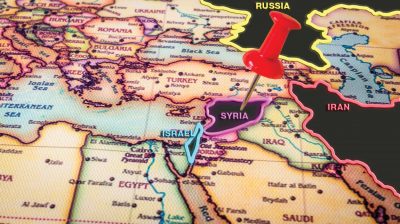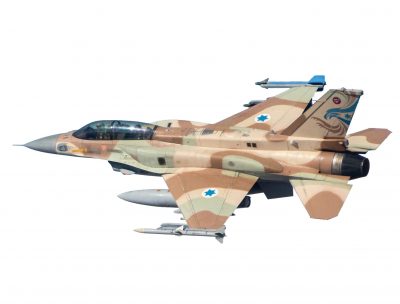×


We have detected your country as:
Please click here to go to the USA website or select another country from the dropdown list.
by: Ilse Strauss, News Bureau Chief
 The Russian invasion of Ukraine occurred to a soundtrack of international condemnation. Yet Israel did not join the chorus of outrage. Instead, Jerusalem avoided taking sides, toeing a diplomatic tightrope between the two warring nations.
The Russian invasion of Ukraine occurred to a soundtrack of international condemnation. Yet Israel did not join the chorus of outrage. Instead, Jerusalem avoided taking sides, toeing a diplomatic tightrope between the two warring nations.
The impartiality didn’t come easily. Every now and then, a slip of the tongue from a minister or high-ranking official revealed the Jewish state’s true feelings. The ties between Jerusalem and Kyiv run particularly deep. There’s also a thriving trade relationship, with Ukraine the primary supplier of Israel’s wheat, amounting to almost half of the Jewish state’s consumption.
Given the close bonds—and Israel’s sympathies—why Jerusalem’s impartiality? The simple answer is that Israel wants to maintain the freedom to act in Syrian airspace against archenemy Iran and its terror proxies. And the decision whether Israel retains or forfeits that freedom lies with Russia.
The answer does, however, raise more questions that beg clarification: What is Russia—a country located thousands of miles away—doing on Israel’s doorstep? And perhaps more importantly, why does Russia hold sway in the Syrian skies?
The ties of friendship between Russia and Syria date back to the decades before the formation of either modern nation. In fact, Moscow had its eye on Damascus years before Syria was recognized as an independent state and worked to establish diplomatic links before the din of World War II died down.
But why the keen Soviet interest? Geopolitically, Syria offered the Soviets a foothold in the Middle East and a stronghold in the heart of the Arab world. Geographically, Damascus gave Moscow a coveted port on the Mediterranean, shaving days off traditional routes and millions in shipping expenses. Economically, Syria beckoned as an unexplored market with vast economic promise.
In the following decades, the friendship flourished, with the two nations working side-by-side on various projects and a steady stream of Soviet civil and military products flowing towards Damascus, with up to 90% of Syrian arms imports coming from the USSR.
There was one sticking point in the otherwise blossoming friendship: Israel. Damascus looked to Moscow to supply the arms that would put it on equal military footing with Jerusalem. However, Russia had its sights set on improving ties with Israel, and Syria was left stewing as its biggest ally cozied up to its biggest enemy.
The friendship between the Soviets and the Syrians survived the ties between Moscow and Jerusalem. The bond remained intact as the USSR fell and the Kremlin had to tighten its belt and focus on pressing issues at home. And the alliance was still going strong in 2010 during the Arab Spring when the first shots of the Syrian Civil War—pitting the Assad regime against its own people—rang out.
For the first five years of fighting, Russia largely watched from the sidelines, offering political support and funneling arms to Syrian President Bashar al-Assad without putting boots on the ground. As the war dragged on, it became increasingly clear that despite significant financial, logistical and combat support from his Middle Eastern ally Iran, the Butcher of Damascus would topple—unless someone intervened.
Russia was not about to give up its foothold in the Middle East, stronghold in the heart of the Arab world, ports on the Mediterranean and an extremely lucrative stream of revenue. So Russia became that someone.
In September 2015, Russia launched its “Mission in Syria”—supposedly against “terrorist” groups—and Russian troops officially entered the conflict.
The combination of Russia’s superior military power providing air power and Iran’s ground efforts bore fruit. A year later, the tables had turned and the axis between Moscow, Tehran and Damascus secured a retreat of opposition forces, winning back one opposition-held area after the other. Seven years after Red troops rushed to Syria’s aid, Russia and Iran not only propped up the flailing Assad regime, Moscow also emerged as the custodian of the Syrian skies, while Tehran gained a foothold for its ground forces.
 All about Iran
All about IranRussia’s presence in Syria doesn’t concern Jerusalem directly, but the Iranians on Israel’s doorstep is a different story.
Moscow and Tehran have different Syrian agendas. Russia seeks a strong, stable Syria indebted to Moscow. Iran aims to exploit the chaos of civil war for regional hegemony, entrenching on Israel’s doorstep and establishing a land corridor to smuggle weapons and fighters from Tehran to Beirut via Baghdad and Damascus.
Israel cannot allow the mullahs to fulfill their Syrian aspirations and has conducted numerous military actions—mostly by air—against Iranian fighters and weapons convoys in Syria. However, such air strikes hinge on close cooperation and even the green light from those who hold sway over the Syrian skies.
In 2015, when Russia entered the Syrian war, then-Prime Minister Benjamin Netanyahu traveled to Russia to iron out the details of Israeli planes operating undisturbed in Syrian airspace. The meeting bore fruit. Over the past seven years, Israel has waged an intensive campaign to dislodge Iran from Syria, all without interference from Russian air defense systems or a head-on collision with the Russians.
Russian tanks rolling into Ukraine strained the ties between the Knesset (Parliament) and the Kremlin—and put a question mark over the Syrian status quo.
In March, Israel joined 140 other UN General Assembly member states to adopt a resolution slamming the Russian invasion. In April, Jerusalem agreed to supply the Ukrainian civil emergency services with helmets and flak jackets. And high-ranking cabinet ministers have spoken out against Russian action in Ukraine on a number of occasions, notably accusing Moscow of war crimes.
Perhaps the straw that broke the camel’s back came in May when Russian Foreign Minister Sergey Lavrov aimed to justify Moscow’s invasion of Ukraine, a country led by a democratically elected Jewish president, as a valiant attempt to denazify its sovereign neighbor by claiming “that Hitler…had Jewish blood. Some of the worst anti-Semites are Jews.”
Lavrov’s statement was met by a firestorm of condemnation from Israel, alongside whispers that Russia crossed the line, inflicting irreparable damage to its relations with Israel.
Shortly afterward, Russia reportedly turned a blind eye to Syrian and Iranian transfers of Russian-made weapons into Lebanese terror group Hezbollah’s eager hands. The Kremlin has also beefed up its presence in Syria, staging joint patrols with Syrian jets along the border with Israel.
 Then, also in May, Russia for the first time reportedly fired its advanced S-300 surface-to-air missile battery at Israeli jets during an alleged Israeli strike on Iranian-linked targets in Syria.
Then, also in May, Russia for the first time reportedly fired its advanced S-300 surface-to-air missile battery at Israeli jets during an alleged Israeli strike on Iranian-linked targets in Syria.
According to several reports the radar didn’t lock onto the Israeli planes and thus didn’t constitute a threat. Yet the misfire wasn’t an operational failure on Moscow’s part. Bringing down the warplanes was probably never Russia’s objective.
Moscow locking horns with Jerusalem in Syrian skies was meant to communicate a message from the Kremlin that Russia is irked with Israel over not having its back in the fight with Ukraine.
At the time of this writing, the question is whether this could mean a dramatic new precedent, signaling a new era where Moscow will no longer allow Jerusalem to act against Iran in Syria, thus giving the mullahs free reign in Israel’s backyard.
Perhaps we’ll have to wait until the next time Israeli warplanes head to Syria to find out.
Photo Credit: Click on photo to see photo credit
Photo License: Israeli Jet
All logos and trademarks in this site are property of their respective owner. All other materials are property of Bridges for Peace. Copyright © 2024.
Website Site Design by J-Town Internet Services Ltd. - Based in Jerusalem and Serving the World.